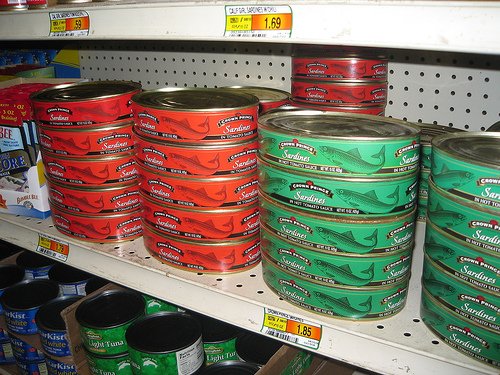If you ever find yourself in the position of giving guidance to a young person, try to turn them onto the idea of spending a year outside their home country, preferably as an exchange student in college. Dorothy was right — there’s nothing that can make you realize that “there’s no place like home” than going away for a while and learning to deal with the differences found in other countries on a day-to-day basis. Just taking a trip for a week or two doesn’t seem to do the trick — you have to spend a few months or a year to get the full effect. Since I’m back in San Diego now, everything from Mexican food to Pop Tarts to Peter Pan peanut butter seems a little more precious to me than before I first went to Japan so long ago. Last night I pulled a Bud Lite out of the fridge and savored it slowly, just because I could — there are hundred other beers I’d rather be drinking, but because you can only get Bud Light in the U.S. of A., it was somehow more special to me. I had the same experience when I lived for a year in New Zealand as a boy — I remember when the first Pizza Hut in Aukland opened in 1976, and we cried tears of joy to eat something familiar from back home.
The concept of being “bilingual” in a language is an interesting one. After four years of studying at SDSU and fifteen years of living in Japan, I’m as bilingual as I could ever need to be — I can discuss various subjects, read a newspaper, and so on. But no matter how much you study a language, there’s always an undiscovered linguistic country waiting around the corner, a new aspect of the language that can throw you. My father was a nautical engineer, designing high-speed boats and writing books on the theory of marine dynamics, and once he asked me to translate a patent he had created, which was certainly an interesting journey into a bizarre world of arcane kanji and Japanese grammatical structures. Contracts are another highly specialized area of the language, with some features that are no doubt left over from ancient China. For example, when dealing with a contract in Japanese, you quickly become familiar with two kanji, koh (甲) and otsu (乙), which in Japanese law signify the concepts “your” company/entity, and “ours.”
The subject of the Japanese female (feminas japonesas) is quite a complex one, and if I should ever find that I am immortal, I might have enough time to pen a book on the subject. I’ve known quite a few Japanese females in my day, between girls I’ve dated, students I’ve taught and my wife, and have come up with some general observations. First of all, Japanese females are usually so organized it’s scary, and I’ve observed female friends whip out little diary books and set a time to meet a month or more in the future. This tendency towards organization is a big plus when managing the household finances, and if you ever marry a Japanese woman, by all means take advantage of this and let her handle the family’s savings. Whereas most guys will not split hairs when dividing a restaurant check, I’ve known Japanese women to meticulously calculate the correct division down to the nearest penny, making sure that no one overpays. Most all Japanese females are constipated, no doubt since they eat so much rice (although they will deny that there is a connection). Finally, I’ve noticed that a high number of Japanese females have bizarre fetishes, like the urge to pull a man’s whiskers out of his face by the roots with tweezers, or an obsessive-compulsive desire to make sure their boyfriend/ husband’s ear canals are completely free of wax.
We’ve got two job openings at our San Diego location, for an experienced T-shirt silk-screener and a general order fulfillment assistant. If you’re in the San Diego area and are interested in helping J-List spread our unique brand of Japanese pop culture, we hope you’ll apply! For more info see this page (T-shirt printer) or this page (order fulfillment assistant).
A big shout-out to Playboy today, who plugged J-List’s extensive line of Japanese snacks in their current issue — thanks! Some J-List readers will note that we don’t currently have some of the items shown in the picture in the magazine, like chocolate Pocky or Green Tea Kit Kat. Because summer in Japan is so hot and humid, we’re forced to remove some chocolate items, or they’d turn into so much Melty Kiss, but we’ll have these items and many more for you in September, when things start to cool down.

During the show we hit a supermarket, one we always hit in Anaheim. I just had to get my camera out.















